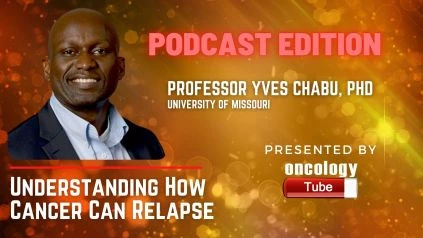Professor Yves Chabu, Ph.D. from MU College of Arts and Science speaks about Understanding How Cancer Can Relapse.
Link to Abstract:
https://showme.missouri.edu/2021/understanding-how-cancer-can-relapse/
Activating mutations in the RAS family of genes are preventing researchers from developing effective cancer treatments. Now, researchers from the University of Missouri and Yale University have revealed that one of these mutations, oncogenic RAS or RASV12, is also responsible for cancer cell recurrence after genotoxic therapy treatment, which involves medicines that break a cancer cell’s DNA in an attempt to kill it.
Genotoxic treatments kill cancer cells by damaging the DNA inside them. To prevent being eliminated, cells typically stop reproducing and seek to repair DNA damage, but if the damage is too great, the cell will quit the repair process and die. To carry off these functions, cells rely on a protein known as “p53.”
Chabu, who has spent more than a decade researching oncogenic RAS mutations, believes that combining JAK/STAT inhibitors with genotoxic treatments will reduce the capacity of RAS tumors to regenerate. Another intriguing element of their findings, according to him, is that p53 is usually thought to be a tumor suppressor protein.
Scientists have been researching RAS gene mutations for almost three decades, and they now have a better grasp of how these mutant genes function. According to the National Cancer Institute, many of them still believe these alterations are “undruggable” or resistant to therapeutic therapy.

